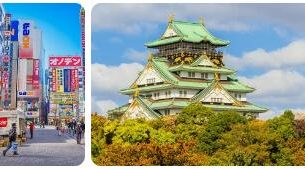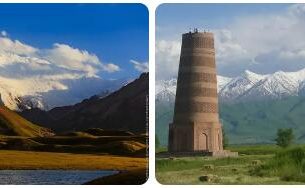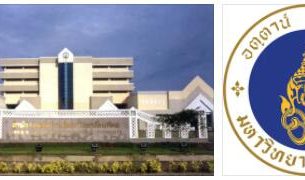Former Dutch colony, Indonesia failed to achieve effective political stability with independence (1949), and was troubled for long years by violent internal conflicts, to which the Western powers were not extraneous, concerned with defending their economic prerogatives and their political influence in an area that has become, in the new international order dominated by the cold war, particularly strategic. The attempt to introduce a Western-style parliamentary democracy failed, the country was thus subject from 1959 to 1965 to the ‘guided democracy’ imposed by the independence leader A. Sukarno, characterized by a nationalism with strong paternalistic features, to arrive, through a bloody reaction, to the pro-Western military regime of A. Suharto. The ‘new order’, as well as on the army, was built on a positive relationship with Islam but, above all, was characterized in a liberal sense for the opening of the internal market to foreign capital (in particular Japanese and American), obtaining some evident successes from the point of view of economic growth. Managed personally by the dictator Suharto and his family, holder of the country’s main monopolies and huge assets, the strong acceleration of the production process, which benefited among other things from the very low cost of labor, it only marginally improved the conditions of the overwhelming majority of the population, while it was accompanied by the spread of corruption and nepotism, which contaminated much of the political and administrative life of the state. Thus began to manifest itself, especially in the middle class – numerically increased following the development of the tertiary sector and eager to acquire a greater political role – and in the intellectual class, a widespread discontent, also shared by large sectors of the Muslim business and commercial bourgeoisie severely damaged by the competition from foreign capital and the wealthy Chinese minority, which has become the economic referent of the regime. Suharto’s attempt to weaken the Islamic movement through the imposition on all social and religious organizations (1985) of a state philosophy (pancasila), generically humanitarian and egalitarian, provided further reasons for contrast and, causing a crisis in the Muslim political organization that supported the regime (the PPP, Partai Persatuan Pembangunan, United Development Party), increased the opposition forces. At the beginning of the nineties Suharto seemed to initiate a policy of cautious liberalization accompanied by a resumption of relations with the Muslim community: the role of pancasila was downsized and even limited freedom of the press and opinion was recognized. For Indonesia history, please check historyaah.com.
Thus, new political and social organizations were born, some under the aegis of the regime such as the Association of Muslim Intellectuals (1990) directed by BJ Habibie, others openly anti-government and not recognized, such as the Indonesian Welfare Union (1992) led by Muchtar Pakpahan, while the action of Partai Demokrasi Indonesia (Indonesian Democratic Party, moderate grouping of nationalists and Christians), the only party beyond the PPP, was regaining vigor under the direction of Megawati Sukarnoputri (daughter of A. Sukarno), elected president in 1993 and the Golkar (Golongan Karya, the party of professional categories) to be officially admitted. Furthermore, in the first months of 1994, also following international pressure, the government revoked the law (introduced in 1986) which allowed the army to intervene during strikes and increased the minimum daily wage.
The limits of Suharto’s liberal policy were not long in manifesting themselves: in the face of the growing demands for democratization and moralization of public life, especially the student movement, and to the economic demands of the working classes, the regime reacted with arrests and indiscriminate convictions and with the reintroduction of strict information control which led to the suppression, in June 1994, of the main newspapers in the country.
In the international field, diplomatic relations with China were intensified in recent years and relations with Australia improved. Relations with Portugal, on the other hand, remained difficult due to the unresolved question of East Timor: despite repeated condemnations by the UN and international human rights organizations, the Indonesian authorities (which controlled the majority of mining and plantations) continued on the island the violent repression against the exponents of the independence movement (Fretilin, Frente Revolucionária do Timor Leste Independente), an expression of the predominantly Catholic local population. This repression was accompanied by an intense campaign of cultural assimilation, also promoted through a massive immigration of the Muslim population. A similar line was adopted towards the Irian Jaya (the western part of New Guinea), also inhabited by a predominantly Catholic indigenous population, animated by strong autonomist sentiments. The award, in October 1996, of the Nobel Peace Prize to the bishop of Timor, CF Ximenes Belo, and to the independence leader in exile J. Ramos Horta, sparked lively protests from the Indonesian government.
Starting in 1996, in view of the general elections scheduled for the following year, the tension intensified particularly. The government’s attempt to delegitimize opposition leader Megawati Sukarnoputri, de facto ousting her from the leadership of the Democratic Party, resulted in serious unrest (July) and new waves of arrests, while the climate of intimidation against those who were growing grew across the country. opposed the regime. Weakened by repression and government interference, the Democratic Party won only 11 seats in the elections held in May 1997, compared to 89 for the PPP and 365 for Golkar., which so heavily reaffirmed its supremacy.
The situation remained critical also in the following months, aggravated by the heavy social repercussions deriving from the rice crisis, consequent to the drought, and above all by the effects of the financial crisis that had hit the countries of South-East Asia in the summer.
The rise in unemployment and the prices of basic necessities, also consequent to the measures requested by the IMF as a condition for financing, provoked between the end of 1997 and the first months of 1998 massive protests (degenerated in some cases into the violent assault to the commercial establishments of the Chinese community) which also massively involved the middle class for the first time, impoverished by the dizzying growth of inflation. Faced with the uncertainty shown by the leaders of the opposition forces, the student movement took the lead in the agitations, welding them to the demands for democratization and setting the goal of removing Suharto (who in March 1998, the only candidate, had obtained the seventh presidential term). Despite the brutal repression by the army, in May Suharto, mainly due to international pressure, especially from the United States, was finally forced to resign and was replaced by Vice President BJ Habibie.
Several times postponed, in June 1999 the political elections were finally held, won by the Partai Demokrasi Indonesia Parjuangan (Indonesian Democratic Struggle Party), formed in February by Megawatti, which won 154 seats compared to the 120 obtained by Golkar and the 58 went to the PPP.
However, the transition to a democratic regime proved extremely complex. Bloody inter-ethnic and inter-religious clashes broke out across the country, causing hundreds of victims. The situation in East Timor was particularly critical (see in this Appendix). The outcome of the referendum called by Habibie in August 1999, also following UN pressure, opposed to autonomy within the Indonesian state and in favor of independence, unleashed the ferocious reaction of the pro-Indonesians who perpetrated violent reprisals against the civilian population, deported en masse to the western area and made subject to summary executions. Habibie, unable to cope with the situation and pressured by the Americans, was finally forced to accept the UN decision to send an international peacekeeping contingent, which arrived in Dili in September 1999. A climate of tension also accompanied the presidential elections held in October and won by the moderate Muslim leader Abdurrahman Wahid.




